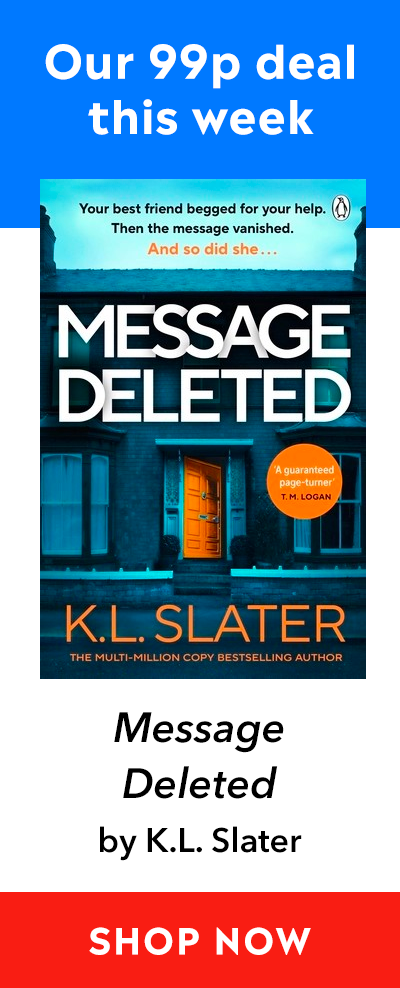Features
An interview with M O Walsh
M.O. Walsh is the author of the stunning literary debut My Sunshine Away.
When fifteen-year-old Lindy Simpson is attacked and raped late one evening near her home, it becomes apparent that the idyllic stretch of Southern suburbia where she lives has a dark side too.
Lindy’s obsessive fourteen-year-old neighbour is determined to solve the crime and investigates every suspect in the neighbourhood – only to find that the friendly community of Woodland Hills has much to hide. Mysterious and atmospheric, this is a novel about obsession, coming of age and loss of innocence – and we promise you’ll be hooked from the first chapter.
We asked M.O. Walsh about My Sunshine Away, his influences and small-town life.
An interview with M.O. Walsh:
Who are your biggest influences?
I feel like I’ve had different influences for different stages of my life. Edgar Allan Poe and Stephen King really got me into reading when I was a teenager. Then William Faulkner, Don Delillo, Kurt Vonnegut, Gabriel Garcia Marquez and Zora Neale Hurston totally knocked me out in college. Once I knew I wanted to dedicate my life to writing, people like Barry Hannah, Italo Calvino, George Saunders and Willa Cather (what strange bedfellows those four would be!) became really important to me. But, more than anyone else, the Mississippi writer named Lewis Nordan had a huge impact on my writing. I can remember reading his story collection Music of the Swamp and thinking, “Oh, wow. Here I am. This is what I want to do.”
How did you find the process of writing a novel differed from your previous work?
I found it to be much more difficult, primarily because I hadn’t ever really written a “middle” before. With short stories, you’re always so close to either the beginning or the end that you never feel lost in the way a novel can make you feel. I worked on this book for about seven years, so there were literally moments were a choice I had made on a whim five years before would come back to bite me. Puzzling all this out, though, and making it work is what ultimately what makes the process so rewarding. Finishing is an extreme pleasure.
Other than the middle (which I guess is just extended plotting), though, short story and novel writing aren’t all that dissimilar. You still want every sentence to be clear and you want it to make people feel something. I’d always heard people say that novel writing is easier in some ways because you have a lot more elbow room than you do in short stories. I didn’t find that to be true at all. In a way, I felt even more pressure to be economical in the novel than in my stories. It’s one thing to ask a reader to pay attention for 17 pages. It’s another to ask them for 300. I don’t want to waste anyone’s time.
Where did the concept for My Sunshine Away come from?
When I was growing up, I overheard my mother telling a story about a teenage girl being raped in our neighborhood. I was too young to know what this meant at the time, but as I got older and understood the awful meaning of the word, I couldn’t stop thinking about how a childhood that I thought of as so idyllic could have been absolutely horrible for someone else living right down the street. I think this tension between memory and reality drives a lot of the book.
Do you think this is a ‘Southern Gothic’ book? What does that mean to you?
I never consciously set out to write a Southern Gothic novel (which typically means to me dark, violent and rural). However, once the book came out and people began describing it that way, it made sense. Still, I never considered any sort of genre when I was writing it. I was just as surprised when people called it a “mystery” or a “thriller” or a “coming of age” tale. All I cared about was trying to write one good sentence and then another and turn that into a good paragraph. After living in the South all my life, though, and after reading so many Southern writers, I could probably set out to describe an English tea party and it would end up having Spanish Moss and dog in it. In other words, Southern is not really what you try to be, it’s just what you are. And I think readers like to call just about anything that is both Southern and serious “gothic”.
Go Set A Watchman is set to be one of the biggest book releases of recent years – did To Kill a Mockingbird loom large in the writing of this book, as a coming of age tale set in the South?
Like most people who grow up down here, I read To Kill a Mockingbird in grade school. I remember loving it, but I honestly hadn’t re-read it since then. Whenever people started making (what I consider to be outrageously hyperbolic) comparisons between my book and hers, though, I felt I needed to re-visit it. I was blown away by how good it was and also how amazing it is that a person can love a book at 14 years old and then love it again for totally different reasons at 39 years old. I think To Kill a Mockingbird is such a powerful and well told story that it has become more than a book. It’s part of the atmosphere now. It’s like you don’t even need to read it to know it. All you need to do is live in the South and want to do the right thing and the book writes itself inside you.
The book is set in the 80s, with events such as the Challenger space disaster impacting on the characters and the narrative. What do you think of when you think of that decade now?
I think the 80s are incredibly rich to reflect upon. There was such an explosion of irony and iconoclasm and everyone felt like they were living in the future with Moog synthesizers and MTV and such. However, when we look back at that decade now, it’s with the sense that it was a much simpler time. Why is that? There were terrorists and disasters and drug use and everything else that people like to link with the end of the world. Yet, you watch a video of somebody with feathered hair dancing to Duran Duran in their big 1980s sweater and you just want to pinch their cheeks. I think the reason for this is because we were still pre-internet then. We were all sort of innocent in a way that we didn’t yet understand. And, I admit, since most of the action in the novel takes place between 1989 and 1994, I enjoyed going back to that time myself.
So much of what we see in England of small American towns seems sinister – Twin Peaks, Gone Girl, even in Stephen King’s work. Is there something inherently dark and intriguing about them? What do you think of when you think of small-town life?
When I think of real small town life, I think of bliss. You’re right that fictional small towns seem to be sinister, though. I’m not sure why that is. As a writer, I think there are practical reasons for setting a novel, especially a crime novel, in a small town. It enables you to erect a kind of fence around the book so that the cast of characters doesn’t get too big and so that they have limited places to run and hide. In this situation, everything gets amplified. You can’t commit a crime and disappear in a small town the way you could in New York or London because, in a small town, the neighbors are always watching. Also, since there is not much else to do in a small town, the gossip gets really intense. And, as you know, once people start telling secrets? Well, things have a tendency to get dark.
What new fiction excites you at the moment?
I’ve been knocked out by just about every book I’ve read lately. I just finished Emma Healey’s Elizabeth is Missing and thought it was incredible. I loved Sean Ennis’s story collection Chase Us, Matthew Thomas’s novel We Are Not Ourselves, and Michael Pitre’s Fives and Twenty Fives. I’m really looking forward to reading Kelly Link’s new collection Get in Trouble and Brian Panowich’s Bull Mountain, as well. Hopefully I can knock them out this summer. Whenever I hear people say that contemporary writing is stale or on the down-swing, I just look at them like they’re crazy. There is so much talent out there and so many people putting in the hard work to see it through. It fills me with joy.


Please note: Moderation is enabled and may delay your comment being posted. There is no need to resubmit your comment. By posting a comment you are agreeing to the website Terms of Use.